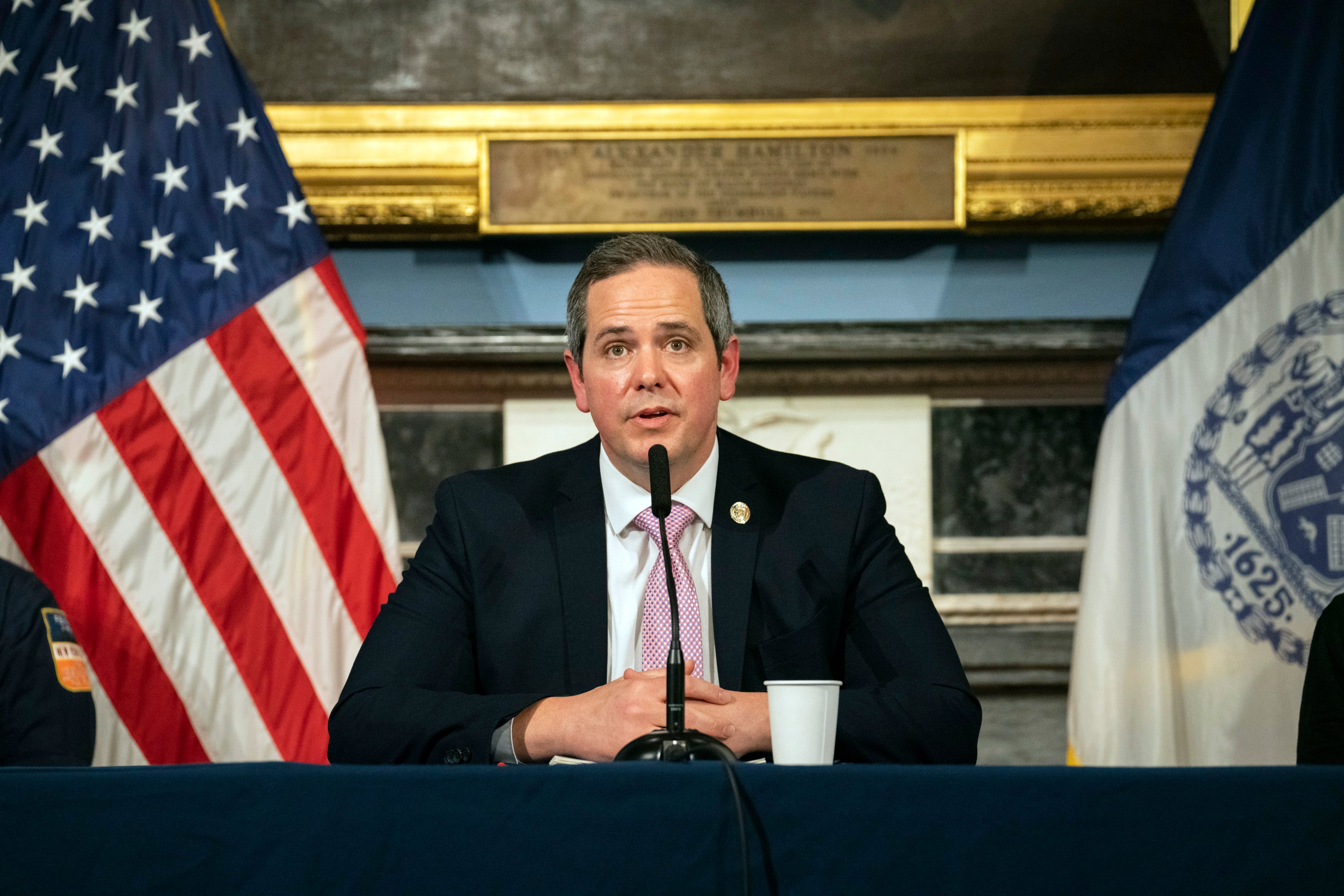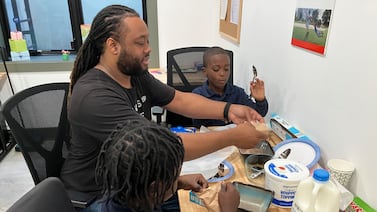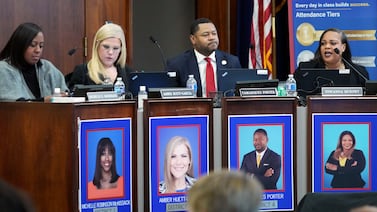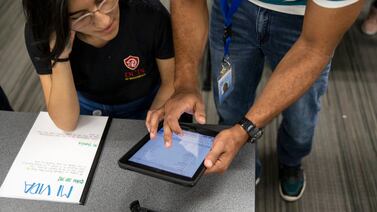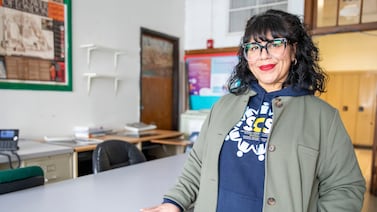When New York City wanted to test cameras on city school buses, they tapped two vendors to pilot the technology.
One was Verra Mobility, an Arizona-based smart transportation company with a history of working with the city’s Transportation Department. The other was BusPatrol, a Florida company run by a former high-ranking official in the office of Mayor Eric Adams.
BusPatrol’s president and chief innovation officer is Justin Meyers, who until last September worked as chief of staff to Deputy Mayor of Public Safety Phil Banks. Federal agents seized the phones of both Banks, his brother, outgoing schools Chancellor David Banks, and a third brother, consultant Terence Banks, earlier this month as part of a federal investigation into Adams’ inner circle. Adams was indicted last week on bribery and fraud charges stemming from another investigation. He has pleaded not guilty.
City officials revealed the pilot program with BusPatrol Monday during a City Council hearing on school bus service. The cameras are mounted on school bus stop arms and snap photographs of the license plates of cars that illegally pass stopped school buses.
Officials didn’t share when the pilot program began. A City Hall spokesperson said the city didn’t pay anything for the pilot, which was led by NYCSBUS, a nonprofit bus operator that contracts with the city.
But the pilot, which started with 30 buses, was successful enough that City Hall and the Education and Transportation departments recently agreed to expand it to 250 buses, said James Sarkis, the executive director of contract operations in the city’s Office of Pupil Transportation.
In his time in City Hall, Meyers was closely involved with the city’s efforts to bring in new technology to aid law enforcement, including the failed pilot to have a robot patrol the Times Square subway station.
Officials will solicit new bids from companies for the expanded program, Sarkis added.
A spokesperson for BusPatrol said “Justin Meyers did not lobby the City of New York for or participate in discussions with the City” about the pilot or the request for proposals for the expansion. The spokesperson added that BusPatrol has no current contract or agreement with the city and said the company followed all city lobbying rules.
Chancellor Banks’ public schedule, obtained by Chalkbeat via public records request, listed a meeting with a “Justin Meyers” on Nov. 28, 2023, just months after Meyers, the chief of staff, left City Hall for BusPatrol. Banks’ schedule also lists a Zoom meeting with “Bus Patrol” in May 2022.
An Education Department spokesperson said the agency played no role in arranging or organizing the pilot.
City ethics rules bar top government officials who recently left their posts from appearing before their former agencies on behalf of a private business for a year. But officials who work for the mayor’s office are often allowed to appear before other city agencies on behalf of private businesses, said John Kaehny, the executive director of Reinvent Albany, a good government group.
But the revelation still raised eyebrows among some lawmakers and ethics watchdogs – especially as Adams and members of his inner circle face scrutiny following federal prosecutors’ unprecedented indictment of Adams.
“This is a disturbing example of the revolving door that desperately needs to be shuttered,” said Council member Lincoln Restler, a Brooklyn Democrat. Restler said he’s introduced legislation that would bar former officials in the mayor’s office from having contact with other city agencies following their departures. “It’s wrong to trade in your relationships from public service to immediately go and make money on the outside on behalf of corporate interest.”
Federal investigators are reportedly scrutinizing contracts and pilot programs for companies with ties to the Banks brothers. That includes Saferwatch, a company that produces a panic button app for schools and hired Terence Banks, a former MTA staffer, as a lobbyist in an effort to bring its product into city schools.
Saferwatch targeted Meyers and Chancellor Banks in their lobbying efforts, THE CITY reported, eventually winning a $67,000 pilot program, though city officials ultimately declined to move forward with a full contract.
Another company formerly owned by Banks, the deputy mayor, won a $145 million contract to provide fire watch services for the New York City Housing Authority, the New York Times reported.
Pilot programs are often subject to less scrutiny than official contracts, which must be publicly reported and solicit multiple bids, Politico recently reported.
BusPatrol lists a number of large districts across the country as its clients. Its website advertises AI-powered cameras that can be mounted on school buses to photograph the license plates of cars that illegally pass stopped buses, and share the information with law enforcement.
In a recent interview with a Buffalo, New York, radio station, Meyers said the company partners with roughly 450 school districts, and that the cameras can reduce instances of cars passing stopped school buses by around 40%.
Michael Elsen-Rooney is a reporter for Chalkbeat New York, covering NYC public schools. Contact Michael at melsen-rooney@chalkbeat.org.

